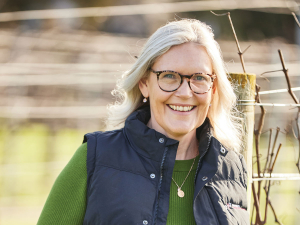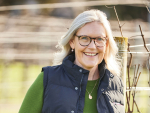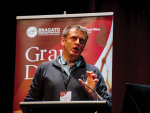“A few clouds of drosophila would escape now and then,” says the new Chief Executive of Bragato Research Institute (BRI), who grew up just outside London with a novelist father, poet twin sister, media-focused elder sister and seamstress mother, whose clients have included Kate Middleton. “They’re all artistic,” says Juliet, who knew early on that she was cut from a different cloth. “I always knew I wanted to be a scientist… What that means for me is I’ve always gone a little bit against the grain.”
Her childhood curiosity for understanding the world around her “in great detail” was not about knowledge for its own sake, but for its ability to have impact. Which is perhaps why Juliet, the first in her extended family to go to university, chose parasitology at King’s College, London, before going on to a PhD at Oxford. “It was pretty unusual for someone with my background and my family to go there,” she says of landing amidst “amazing privilege and history and knowledge, where I thought ‘wow what I am I doing here?’”
That culture shock was nothing compared to what followed, with her scholarship taking her to field work in Tanzania when she was 23. Her supervisors left after a few days, and Juliet found lodgings, employed a research team, set up a lab, and set about gaining trust and taking samples, while relying on a payphone in a neighbouring village for communications with her home and university. She spent two three-month periods in Tanzania, researching the epidemiology of Schistosoma haematobium infection, caused by parasitic flatworms. “The purpose for me was to deliver health programmes to the people that need it the most,” she says, noting that while the disease is easily treatable, cost constraints mean they have to figure out the best way to diagnose and get treatment to people that needed it.
Over the first three months she visited 23 schools in Muheza district, including communities that had never seen a car or a white person, leading to children running away from her in alarm, before swiftly returning, intrigued by her hair. “I was really dropped in it.” The work satisfied Juliet’s desire for practical outcomes, via The Partnership for Child Development, founded by Oxford University, which worked with health and education authorities to put in place a new system for recognising and treating Schistosomiasis. Later on, nine months of fieldwork in The Gambia, as part of a two-year post doctorate research programme, showed that pregnant women were more susceptible to mosquito bites and therefore malaria, leading to opportunities for more targeted treatment. “It’s got to be for a point; not just curiosity,” Juliet says. “What’s the point of knowing something if it doesn’t help someone in some way?”
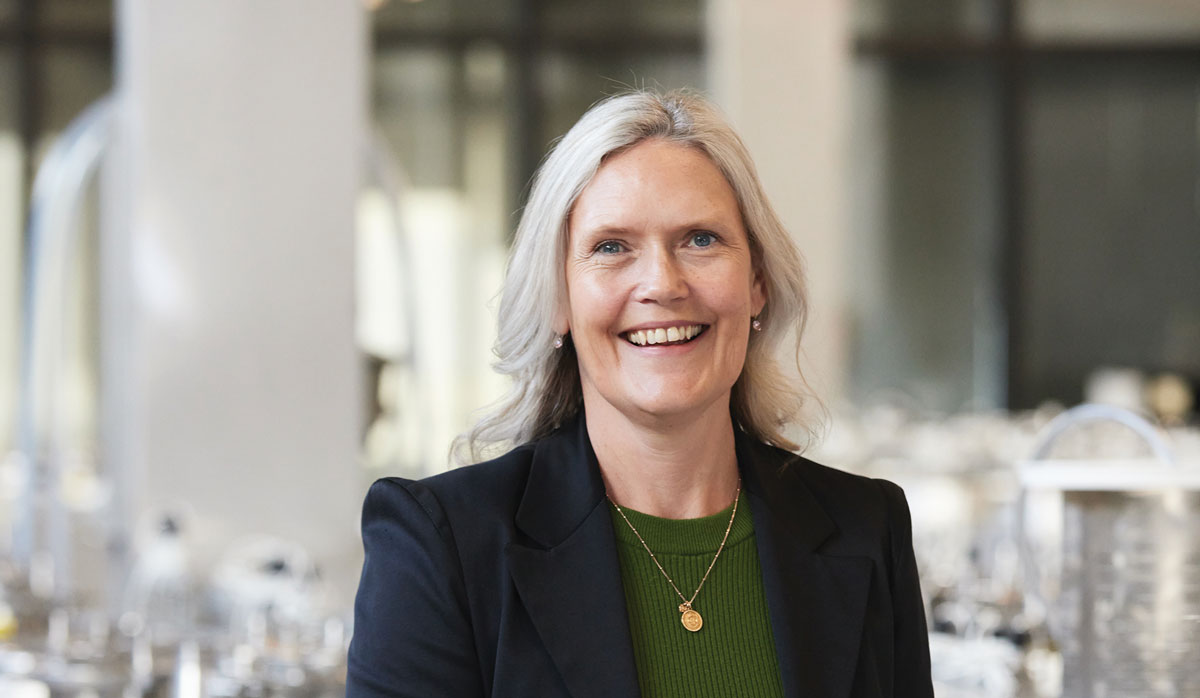 |
|---|
|
Dr Juliet Ansell
|
Growing Comfortable with Discomfort
From the linen closet in a creative home, to the hallowed halls of Oxford University, to research labs in rural Africa, Juliet grew an appetite for discomfort, “which is where you get the most growth”. That’s been useful in the roles she’s had since, including at Plant & Food Research, Zespri, and now BRI, she told audience members at the Altogether Unique Research & Innovation Forum in Wellington at the end of August. In each of those roles, as in Africa, she’s gleaned knowledge of the people, environment and culture, resolving to work with it, not despite it. “You have to respect the past. You can’t just come into an industry and say, ‘I have all these ideas. I know how to do it.’ I think that’s the phase I am in now.”
Juliet was working on another post doctorate project when she met her future (now former) husband, also a parasitologist, at a scientific conference. He lived in New Zealand, and she found herself moving to Palmerston North in 2000, following a pattern of “going to live halfway around the world even though I don’t know anyone”, she laughs. With a dearth of human parasites to study, she moved to sheep parasites, then cattle parasites when the couple moved to Australia with their first son, having their second son while there. They returned to New Zealand in 2005, and Juliet took a role with what would become Plant & Food Research, shifting her focus from parasites to gut bacteria, and the interactions between human nutrition, immunity and microbes. “A lot of work on digestive health and particularly how plants affect digestive health.”
Kiwifruit were a major part of the work, and Juliet was seconded to Zespri Innovation in 2014, before moving to the grower-owned organisation full time. Her first five years at Zespri were focused on human health research, including successfully passing a health claim through the European Food Safety Authority, following rigorous clinical trials and mechanistic studies around the world. “That was a massive undertaking,” she says. The next five years were in more managerial roles, “and that’s where I got to understand not just the science but what structure you needed around that”.
Balancing Act
Science and innovation are all about free thinking, Juliet says from the BRI office she joined in May, overlooking the organisation’s Blenheim-based research winery. “It’s all about exploration and ideas. Trying something, having it fail, trying something else.” Sometimes it’s about serendipity, like penicillin, she adds. But that exploration requires a platform of process and structure that can balance high and low risks and is prepared to invest more, given signs of success, or jettison foiled ideas in a timely way. That’s about bringing rigour to growing innovation and managing research programmes, she says. “That’s what I learned from Zespri.” A “portfolio approach” might see 10% of funding going to very high-risk programmes with potential for very high gains, as long as there is industry buy in and agreement, she says, noting that Zespri also taught her high regard for the members footing the bill. “I have to think like it’s my money I am spending. Would I invest my money in it?”
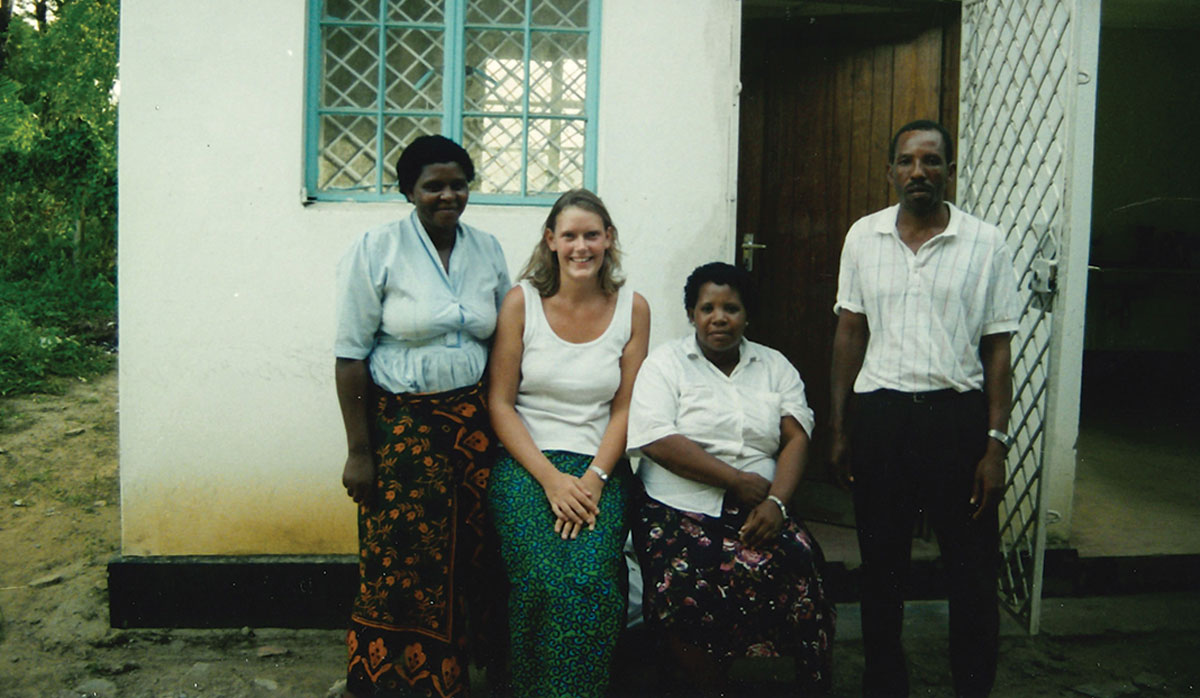 |
|---|
|
Juliet in the Tanga district of Tanzania.
|
Juliet looks for curiosity in the people she employs, as well as “a willingness to admit you are wrong”, because there are always mistakes and things that don’t work out. She also values the ability to build relationships and network, “because you cannot do it on your own”. That’s the stage she’s currently in, meeting the people driving New Zealand’s wine industry, tapping into “a huge wealth of knowledge”, and finding out what people know, or want to know, and what has and hasn’t worked. She has quickly discovered an open and collaborative industry, “and that helps innovation go faster”. The eager willingness to share is partly down to the fact that wine is greatly influenced by the place it is grown, so sharing genetic information with another country, for example, doesn’t give away New Zealand’s competitive advantage but allows for open and rapid innovation, she says, excited at the potential.
“It’s not going to be a cookie cutter approach from Zespri to Bragato”, Juliet adds. “Different industry, different challenges, different people. Respecting the past is knowing what people have learned along the way, so I am not charging ahead with my own views.” There will be high risk projects that fail, and there will be future-focused projects that are not yet on industry’s urgent to-do lists, like climate change and gene technology. “They won’t agree with everything that I think we should be doing, or that we do. But that’s my job,” Juliet says, once again getting comfortable with discomfort. “Because if I am not pushing the boundaries then I am not fulfilling the role of a research institute for the industry.”





